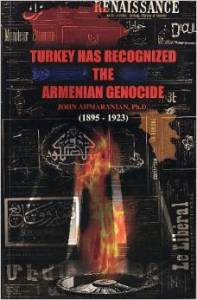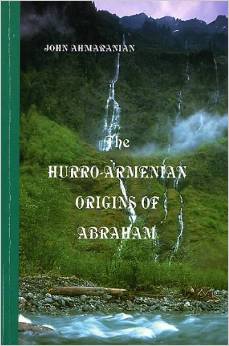PART I THE BEAUTY OF THE ARMENIAN LANGUAGE
The Armenian language is part of Indo-European family. I have a problem with that classification. The term Indo-European is created by a French etymologist in the 1860s.The name EUROPA did not exist 5,000 years ago. Armenian is the cradle of civilization. So, the so called European languages were born in the Caucasus and their origins are in the Armenian Highlands. The relationship between Latin, Greek and their European branches are to be found in the Armenian language and not vice versa.
Few example:
a) In Armenian the word to sit down is Pazmil (for humans) and Nsdeel is for non human beings, such as animals, or objects. I.e. Noah’s ark “Sat Down” which is “Nsdav” on the Mountain of Ararat, or the bird “Geh Nsdi” means the bird sits. The English word Nest comes from the Armenian root word of Nesd which is used as “Nsdi”.
b) The English word SHRED comes from Armenian SHERD (to cut to pieces).
c) The English word Angle comes from the Armenian word Ang (Which means deviate). Some examples:
- Ang-yun – Means corner (Deviated angle)
- Ang-oghin – Means the place of bending your side (Angling your flank) which you do at a bed.
1- Agh – Salt in Armenian
Agh means salt in Armenian. It also means “Blessing”, this is why the Armenian priest blesses the bread and the salt twice a year.
The word “Salt” or “Agh” is used to mean more than just salt. For example:
- Agh, (Salt – Blassing)
- Agh-vor, (Nice Also means full of blessings)
- Agh-eg, (Nice also means full of blessing)
- Agh-pyuir (Fountain also thousands of blessings)
These words don’t only mean beautiful, but they also mean full of blessings.
2- Right & Left Hand
In the bible the blessings were done with God’s right hand, which is “Ach” in Armenian. So Ach or Right, was associated with good. or success. Example:
- H-Ach-oghil – To become successful (Root is “Ach” which means right hand)
On the other hand the negative things were associated with the word “Tzakh” which means Left in Armenian. Example:
- Tzakh-oghil – To fail or to be unsuccessful (Root is Tzakh which means Left Hand)
PART II THE BEAUTY OF THE ARMENIAN LANGUAGE
Many Armenian words have a “background picture” illustrating the idea of the word. Examples:
1) bhad (պատ) means wall
a+badh (ա + պատ) means to dwell in a place with no wall (oasis, field). The English verb TO ABIDE comes from this word.
an + a + badh (ան + ա + պատ) means a place without wall and useless for habitation(desert)
so, in Armenian, anabhad is desert.
2) In ancient Armenia, AR is the sun and is the name for God .
AR + AR is the perfect tense of the verb to do which means the SUN that created the sun.
AR+ AR + AD (suffix for place), means the place where the SUN GOD created the sun. This is the root of the name of Ararat
AR + AR + ITCH (suffix for doer), means Creator.


